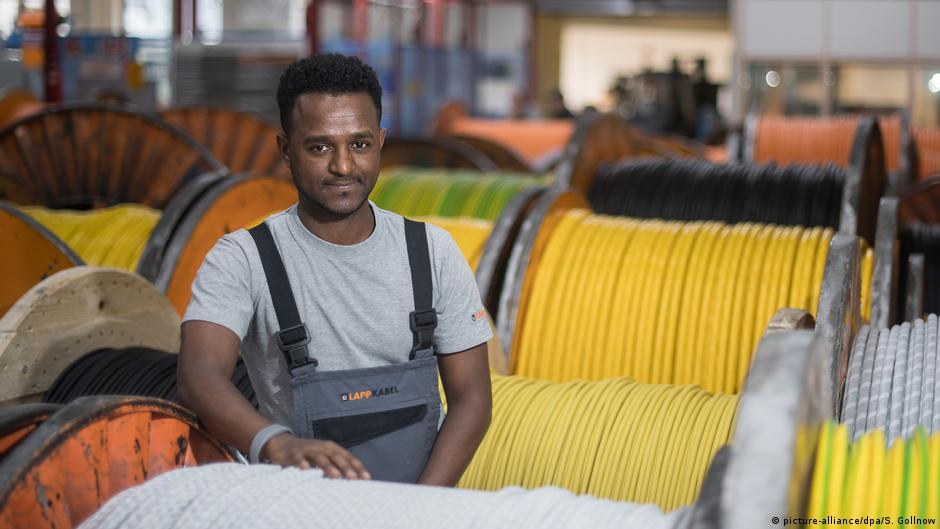Refugees in Germany: Why most Eritrean Refugees work in non-skilled or low-skilled jobs?

Geflüchteter aus Eritrea
Description:
Time required: Three hours
Previous knowledge: None
Topics: Democracy, Human Rights and Refugees
Background:
The UNHCR estimates 10% of the Eritrean population have fled in recent years. From the start of 2012 to the middle of 2016, 1 in 50 Eritreans sought asylum in Europe, nearly twice the ratio of Syrians. They made a choice to fled and brave the world’s deadliest migrant trail, across the Sahara and the Mediterranean to Europe. Germany hosts 76,000 of the UNHCR-registered Eritrean refugees as of 2020. Unfortunately, most of these them are employed in non-skilled or low skilled jobs.
Identifying the factors that coerce Eritreans to fled their country and the reasons why most Eritrean refugees get employed in non-skilled or low skilled jobs is the main focus of the workshop. Hence, the workshop highlights political situation of Eritrea pre- and post-colonialism. Moreover, the bureaucratic hurdles Eritrean refugees in Germany are encountering in family reunion process will be dealt. Finally, the intervention of Eritrea in the ongoing Tigrai war in Ethiopia and the situation of hundred thousand refugees caught up in the conflict will be discussed.
Aim:
The workshop aims to enlighten on the rights of refugees and the bureaucratic hurdles impact on refugees rights, to foster engagement. Besides, to raise awareness on the factors why most Eritrean refugees opt for non-skilled or low skilled jobs. Furthermore, to enlighten on the corporate social responsibility of the mining companies operating in undemocratic
countries.
Anfrage Bildungsangebot
*Pflichtfelder
Um unverbindlich Bildungsangebote anzufragen oder zu buchen, bitten wir Sie, folgendes Formular mit allen Informationen, die Sie bereits haben, auszufüllen und abzusenden. Wir melden uns dann bei Ihnen. Für die Vermittlung erheben wir keine Gebühr. Bei Fragen oder technischen Herausforderungen wenden Sie sich bitte per E-Mail an workshops@ejbweimar.de.
